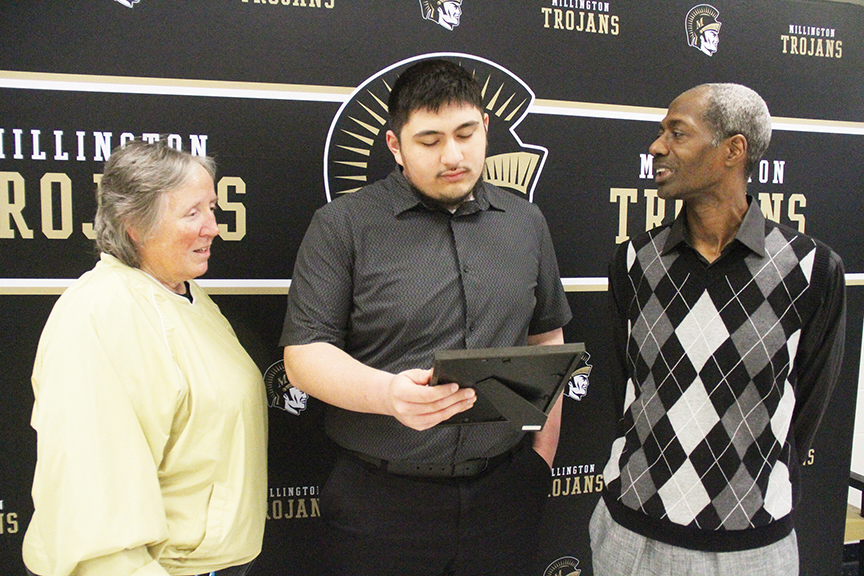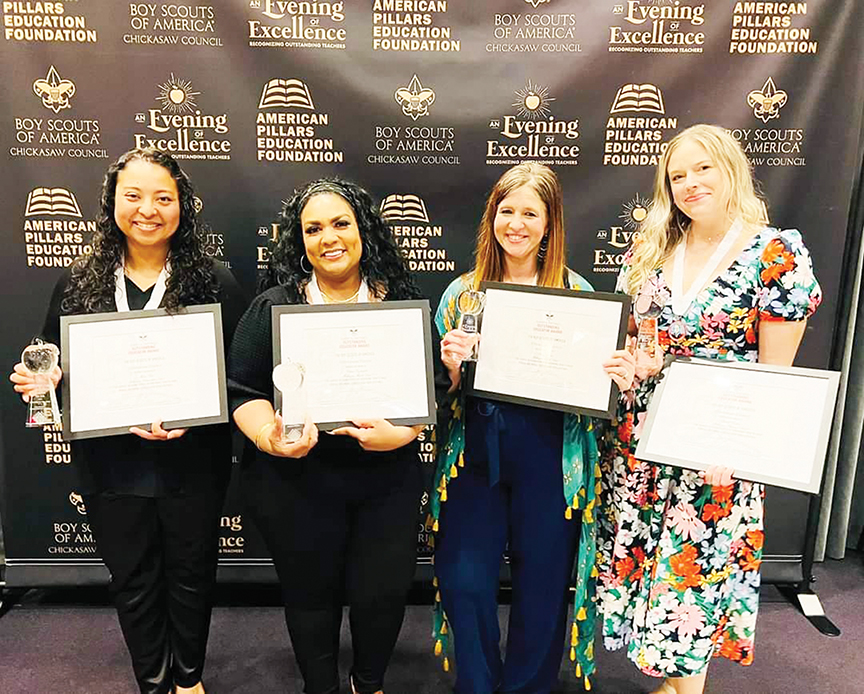 Menu
Menu
By Bill Short
 Greg Ritter
Greg Ritter  Roger Christopher
Roger Christopher
Position 1 School Board member Gregory L. Ritter, seeking his second term, is being challenged by Roger Christopher in the Nov. 8 Millington city elections. After graduating from Woodstock High School in 1964, Christopher attended Tennessee State University and Shelby State Community College, studying business administration. He earned a Bachelor of Bible Theology Degree at International Seminary, as well as a Master of Divinity Degree and a Doctor of Ministry Degree at Andersonville Theological Seminary. Employed as a pastor and school bus driver, Christopher is a member of the Vietnam Veterans Association and Independent Fellowship International. He and his wife Laura have two children. Ritter earned both a Bachelor of Arts Degree in business administration and a Master of Science Degree in accountancy at Rhodes College. He is employed as director of Finance at Partners Central Business Office LLC. Ritter is a member of the First Baptist Church in Millington, the American and Tennessee Societies of Certified Public Accountants, a volunteer youth coach in baseball, basketball, soccer and football and is an adjunct professor at The University of Memphis. He and his wife Kelly have three children.
Both candidates recently responded to the following questions prepared and distributed by The Millington Star:
1. What additional policies do you think the newly elected school board should adopt after it is sworn in? Christopher recalled that, at its inception, the Millington School Board established a “comprehensive” set of policies, modeled after successful school districts, to cover various areas related to students, personnel, fiscal management, operations and services. “At this point,” he said, “I believe the focus is less about new policy and more about consistent adherence to policies that are already in place.” Ritter recommended policies that are aligned with the school system’s “mission,” which is to provide a “safe environment” that allows teachers to “maximize” the educational experience for each child.
2. List three significant issues in this election.
Both candidates cited funding, while Ritter also listed learning and diversity. Christopher included school administration recruitment and development, facilities improvement and consistent application of policy.
3. Specifically, how do you plan to deal with each of these issues if elected or re-elected?
Christopher said he will evaluate grant opportunities for technology, teaching and training resources that would “free up” funding for facilities improvement and sustainability. Calling the municipal school system “a significant asset” to Millington, Ritter said he will continue to build support within the community to include the schools in the “forecast” and “vision” for the city’s future. “The better we make our school system and schools,” he noted, “the more attractive Millington becomes to current and potential residents and businesses.” To ensure that the school system employs “the best people,” Christopher said he will identify opportunities for improving training tools and resources. He will also recommend that a process be established for “regular review of disciplinary actions.” Ritter said there is “too much emphasis” on standardized testing and those results, while he acknowledged that much of it is “mandated” at the state and federal levels. He said teachers feel like they are losing the ability to teach. “I’m concerned that student learning has suffered in the process,” he noted. “School should be fun, but students should learn and be prepared for future challenges.” Ritter said a “happy medium” should be developed, where teachers are allowed to teach “appropriate material” that also prepares students to excel on standardized testing. In today’s society, Ritter said, “diversity” is usually associated with race or gender. But when he hears the word, he thinks of offerings to students. While noting that not all students have the same interests, he said the state curriculum is basically forcing them to be “college-eligible” upon graduation. “I want Millington Municipal Schools to propose an alternative curriculum with a career technical education focus that results in a state-approved diploma,” he said. “The goal should be for this diploma to allow students to begin work in their chosen fields.”
4. What do you think is the biggest concern facing the municipal school system at this time?
While Christopher cited “sustainability,” Ritter listed three major concerns – faculty, facilities and public perception. The board vice chairman said the municipal school system needs work environments that attract and retain “great” teachers, as well as “safe and secure” buildings that inspire teachers and students to excel. He also said the perception of Millington and its schools must be changed within West Tennessee, Shelby County and with “our friends” at NSA Mid-South. “We are no longer the stepchildren of Shelby County Schools,” he noted. “We are building something great in Millington, and we need to let everyone know.”
5. What specifically makes you best qualified for the position you are seeking or seeking to retain?
Citing his service in the military, Christopher said he is a Vietnam veteran and has been a leader in the Millington community as a pastor. His children attended E. A. Harrold Elementary, Millington Middle and Millington Central High School. “I supported the schools during the years my children attended,” he noted. “I served the schools and community as a postman for 30 years. I sincerely believe in putting education and the welfare of the student first.” Ritter said he brings a “business perspective” to the conversation, which helps in answering questions about the business of running a school system or how to allocate the funds. “I have the ability to understand and communicate with people from all walks of life,” he noted. “And I value ideas that are different from my own, even if I don’t agree.”
As a parent of students currently in the system, Ritter said he also hears many of the issues facing the schools at both the school and board levels.




